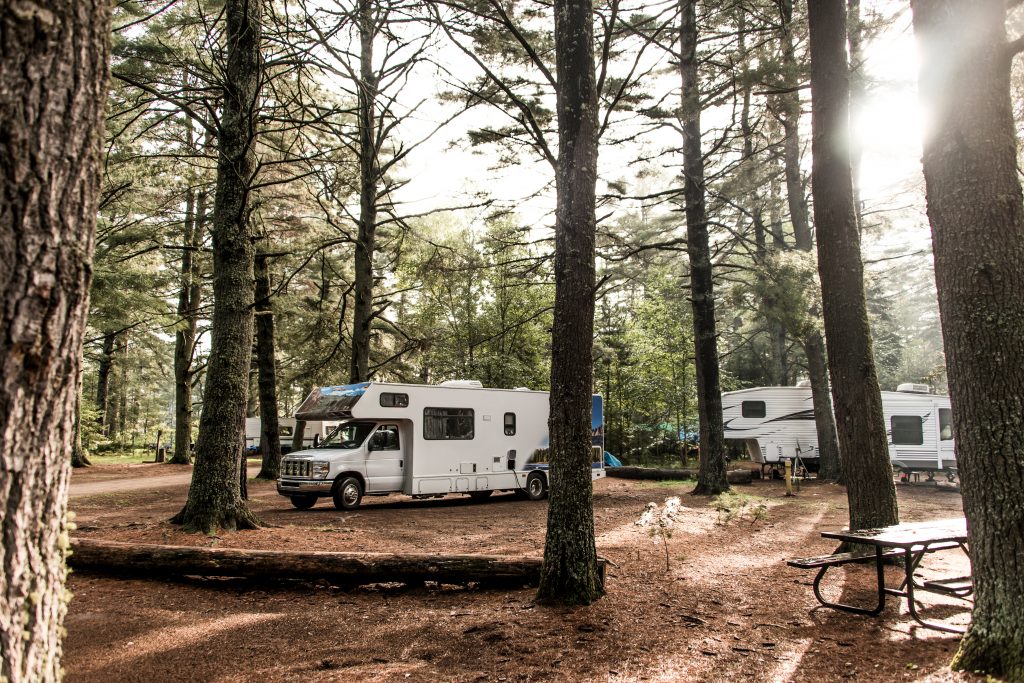RVing For Seniors: Complete Beginner’s Guide For 2024
Embrace the open road and invigorate your golden years with the freedom and adventure of RVing. This comprehensive guide will walk you through all the key steps, considerations, and insights needed for seniors to embark on an RVing journey.
Introduction to RVing for Seniors
RVing, short for recreational vehicle travel, represents the freedom of the open road coupled with the comfort of home. It’s about exploring new landscapes, encountering different cultures, and embracing the joy of discovery, all from the comfort of a mobile home that offers familiar, cozy living quarters. An RV isn’t just a vehicle; it’s a passport to countless adventures and experiences.
Why RVing is Great for Seniors
Retirement is the perfect time to start exploring the world at your own pace. With the daily hustle and bustle of work out of the way, seniors can dive headfirst into an adventure of a lifetime. The beauty of RVing is that it combines the freedom to explore with the comfort and safety of home.
RVing allows seniors to explore the corners of the continent at their own pace. Whether you want to park beside a tranquil lake for a few days of fishing, visit historical landmarks, or follow the sun to stay warm all year round, RVing gives you the flexibility to create your unique adventure.
Starting Your RV Journey
Choosing the Right RV for Seniors
Choosing the right RV involves considering your physical needs, lifestyle, and comfort. Knowing the different classes of RVs can help determine which one might best suit your needs as a senior.
Different Classes of RVs
RVs come in various shapes, sizes, and classes, each offering unique benefits. Let’s break down the primary classes:
- Class A Motorhomes: These are the largest and most luxurious of the RVs. They offer plenty of space and often come with high-end amenities, similar to a residential home. However, they can be challenging to maneuver, especially for those new to RVing.
- Class B Motorhomes: Also known as camper vans, these are the smallest motorized RVs. Their compact size makes them easier to drive and park, even in regular parking spots. However, their smaller size means less living space and fewer amenities.
- Class C Motorhomes: These are a middle-ground option between Class A and B. They offer a balance between size and amenities. A distinctive feature is the cab-over profile, which often houses an extra bed.
- Travel Trailers: These are towed behind a vehicle, meaning the driving portion is separate from the living area. They come in a variety of sizes. A smaller trailer might be easier to handle for those new to towing.
- Fifth Wheel Trailers: These are larger trailers that hitch in the bed of a truck, allowing for more living space. They require a pickup for towing, so they may not be suitable for all seniors.
- Pop-up Campers: These are compact trailers that expand into a sizable living space. They’re lightweight and easy to tow but offer fewer amenities.
Which RV is Best for Seniors?
The best RV for seniors often depends on personal needs and comfort levels.
- Class B motorhomes are an excellent choice for single seniors or couples who value ease of travel and don’t mind smaller living quarters. They are easiest to maneuver and park, which can be less stressful for senior RVers.
- Class C motorhomes offer a great balance of comfort and drivability. They provide more living space than Class B and are easier to handle than Class A, making them a popular choice among seniors.
- Travel trailers can be a good option if you already have a capable towing vehicle and prefer to have separate driving and living spaces.
However, it’s always best to check out different types of RVs in person to get a feel for what suits you best. Consider renting different types to try out before making a purchase.
For a more in depth guide to choosing the right RV for seniors, click here.
RV Essentials for Seniors
As you prepare for your RV journey, there are some essentials to consider to make your trip as comfortable and safe as possible.
Comfort Items
Make your RV a home away from home. Include comfortable bedding, your favorite kitchen utensils, and any other items that will enhance your comfort. The aim is to create a personalized space where you feel at ease and happy.
Safety Equipment
Safety is paramount when RVing. Equip your RV with essentials like a first-aid kit, fire extinguisher, and smoke and carbon monoxide detectors. Additionally, consider investing in a good quality GPS system and backup camera to assist in navigating and maneuvering the RV.
Planning Your RV Trip

Choosing Your Destination
The beauty of RVing is that you can choose your destination and the pace at which you travel. From the sunny beaches of Florida to the breathtaking mountains of Colorado, the options are endless. Think about what kind of activities you enjoy, whether that’s hiking, bird watching, fishing, or simply soaking up the scenery. Research each location to ensure they are senior-friendly and can cater to your specific needs and interests.
Creating a Travel Itinerary
Planning your journey is an exciting part of the RVing experience. It’s a chance to map out the adventures that await you.
Considering Accessibility and Amenities
When planning your route and selecting campsites, take into account accessibility and amenities. Prioritize locations that have facilities catered to seniors, such as well-maintained paths, wheelchair-friendly facilities, and nearby medical services. Remember, it’s not just about the destination but also the comfort and convenience during your stay.
On the Road: Tips for Senior RVers

Whether you’re a seasoned driver or new to the world of RVs, driving an RV requires different skills compared to regular vehicles. The following are some tips to make your RV driving experience smoother and safer:
Familiarize Yourself with the RV
Before hitting the open road, get to know your RV. Understand its dimensions, turning radius, and braking distance. Practice maneuvering the RV in a safe, open space such as an empty parking lot. This will help you get a feel for its size and handling, and build your confidence.
Avoid Rushing
Remember that RVing is about enjoying the journey as much as the destination. Avoid rushing, as it may lead to accidents. Drive at a pace that’s comfortable for you, even if it’s slower than other vehicles.
Plan Your Route
Preparation is key when it comes to RVing. Map out your route ahead of time, noting the locations of campgrounds, gas stations, and rest areas. Consider using an RV-specific GPS, as these often include information on bridge heights and other restrictions that could affect your route.
Manage Your Space
Space management is critical when driving an RV. Keep a safe distance from the vehicle in front of you, as larger vehicles like RVs take longer to stop than smaller ones. Also, remember that the size of your RV may require extra space for turns, so adjust your driving accordingly.
Handling Wind and Weather Conditions
Because of their size, RVs can be more affected by wind and weather conditions than smaller vehicles. In windy conditions, slow down and stay alert. If the weather becomes severe, find a safe place to park and wait it out.
Regular Breaks
Long hours on the road can be exhausting. Make sure to take regular breaks to rest, stretch, and refresh. Try not to drive more than 4-5 hours per day, and avoid driving at night when visibility is reduced.
Maintenance Checks
Regular maintenance checks are essential for safe RVing. Check your tire pressure, fluid levels, brakes, and lights regularly. This not only ensures that your RV is in good working condition but can also prevent potential issues on the road.
Driving an RV might feel daunting at first, but with practice and these tips in mind, you’ll soon be enjoying the freedom and fun that RVing offers. Remember, safe driving is happy RVing!
Campsite Etiquette and Safety
Once you reach your destination, being a good neighbor and maintaining safety are essential.
- Respect boundaries: Every campsite has its boundaries—make sure not to infringe upon your neighbors’ space.
- Follow rules: Each campsite has specific rules about things like noise, pets, and fires. Respect these rules to ensure a pleasant stay for everyone.
- Secure your belongings: Always secure your RV and personal belongings, especially when leaving the campsite for activities.
Health and Wellness on the Road

Staying healthy on the road is essential for a pleasant RVing experience.
Keeping Up With Medications and Doctor Appointments
If you take regular medication, ensure you have an adequate supply before you set off. Plan ahead for prescription refills, possibly arranging for them to be filled at a pharmacy along your route. For doctor appointments, consider telemedicine—many healthcare providers offer virtual appointments, which can be taken anywhere with a good internet connection.
Staying Active and Healthy
Staying active is a crucial part of maintaining health, especially for seniors. Incorporate physical activity into your daily routine, such as walking, hiking, or biking. Use your travels as an opportunity to try new forms of exercise, like beach yoga or mountain trekking. Also, remember to keep a balanced diet—your RV kitchen is an opportunity to experiment with nutritious recipes.
Conclusion
Embarking on an RV journey in your senior years can be a fulfilling and invigorating experience. It offers the perfect blend of adventure and comfort, with countless opportunities for discovery and enjoyment. With the right preparation and mindset, RVing can truly be a golden highlight of your golden years.
FAQs
Is RVing safe for seniors?
Absolutely! With the right preparation and precautions, RVing is a fantastic and safe way for seniors to travel.
How can I maintain a healthy lifestyle while on the road?
Staying active, maintaining a balanced diet, and keeping up with medical appointments are key to staying healthy while RVing. It’s also important to keep your mental health in check—stay connected with friends and family and engage in activities you enjoy.
What features should I look for in a senior-friendly RV?
Features to look for include non-slip floors, handrails, easily accessible storage and controls, comfortable and adjustable seating, and possibly even wheelchair access, depending on your needs.
What type of RV is best suited for seniors?
The best RV for seniors depends on personal needs and preferences. However, many seniors prefer Class B or Class C motorhomes due to their size, ease of driving, and comfort features. If you plan to stay stationary for longer periods, a fifth-wheel trailer can offer more living space.

Remember, life is not just about reaching the destination, but also about enjoying the journey. And there’s no better way to enjoy that journey than from the comfort of your very own mobile home.
Happy travels, and always remember – you’re not getting older; you’re getting better at adventuring!